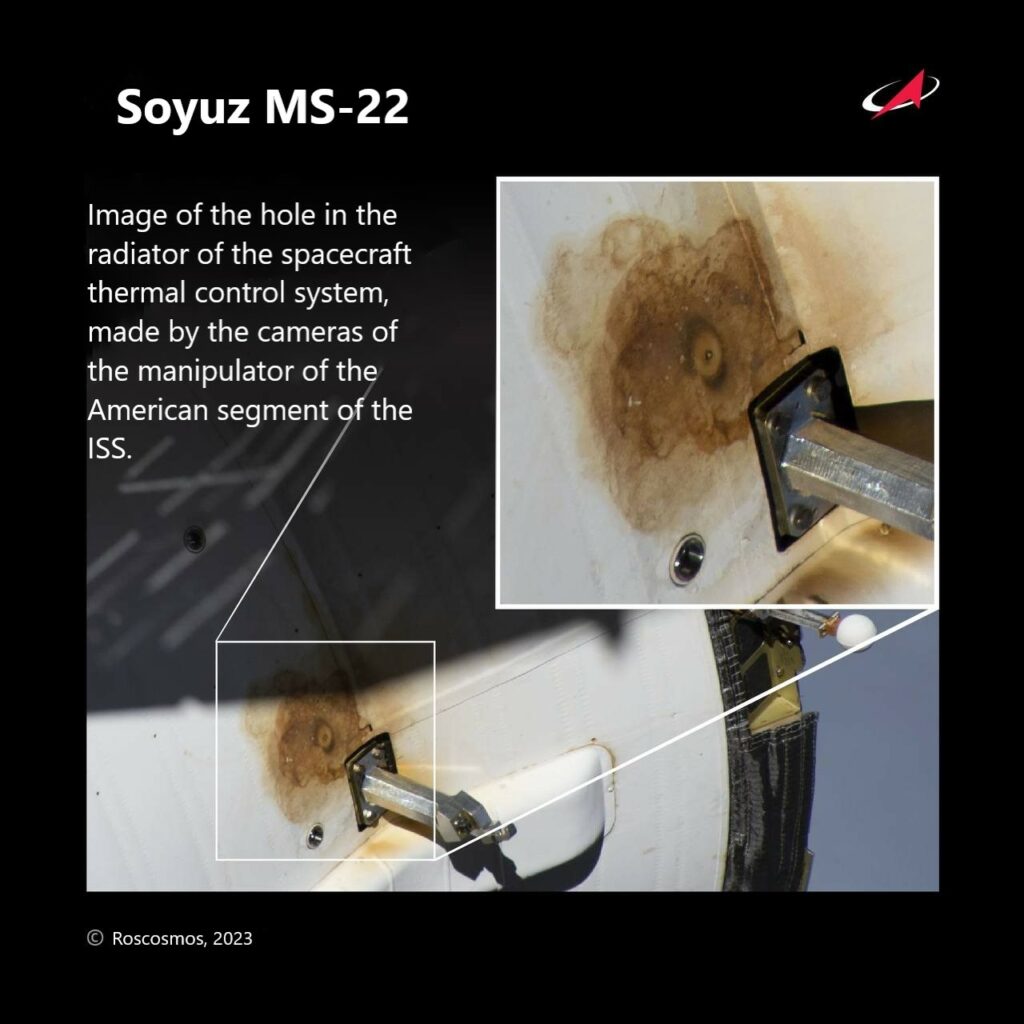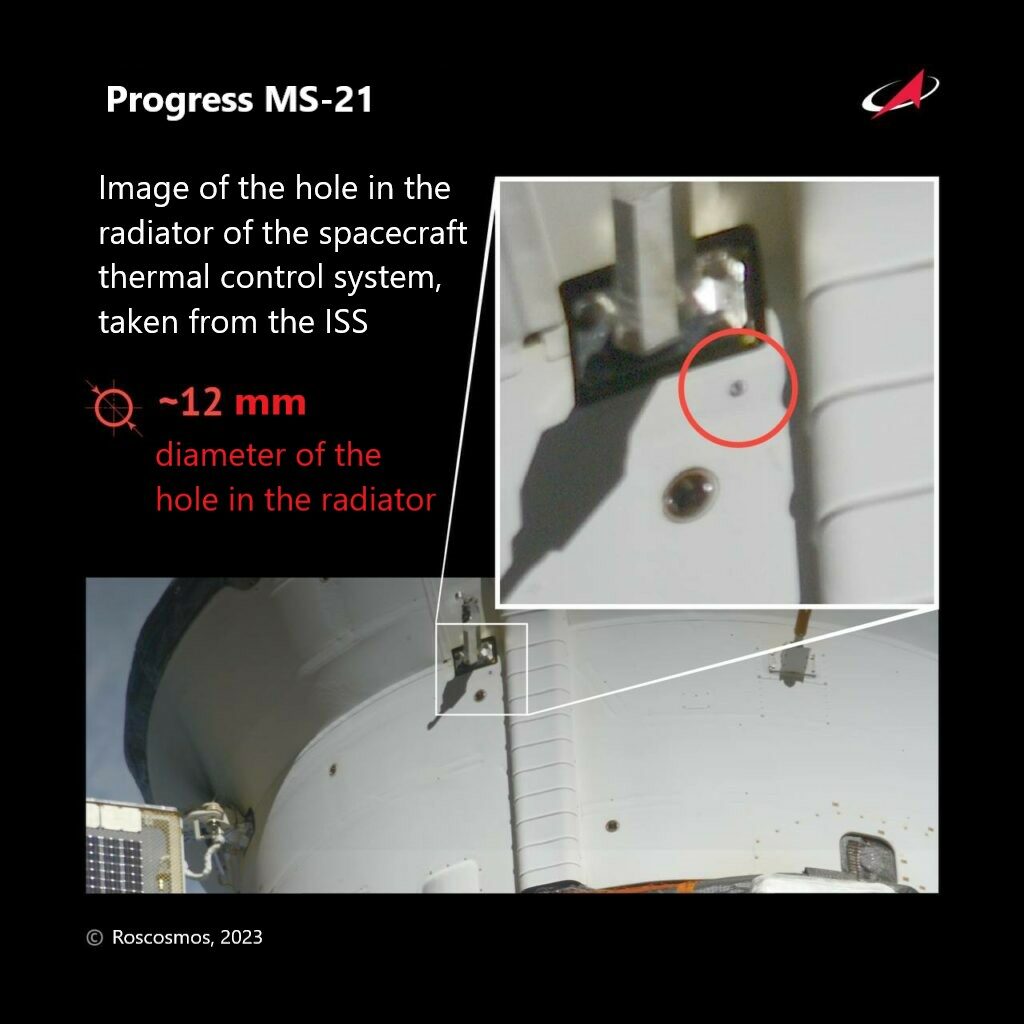A coolant leak from the cooling system of the Progress MS-21 supply spacecraft was caused by external damage. This was stated in a message published in the telegram channel of Roscosmos.
A leak from the Progress MS-21 cooling system occurred on February 11. As a result, the spacecraft completely lost its coolant. This incident occurred just two months after a similar accident of the Soyuz MS-22 spacecraft, as a result of which it also lost all the coolant and became unsuitable for manned flight. Its cause was called the hit of micrometeorite in the radiator.
After the second consecutive accident of the cooling system, Roscosmos finally published a picture of the Soyuz MS-22, demonstrating the presence of a hole through which the leak occurred. It was also announced that the launch of the Soyuz MS-23 spacecraft, which would be used to return the Soyuz MS-22 crew to Earth, would be postponed from February 20 to early March. However, it was then moved to February 24.

Now, Roscosmos has published a photo of Progress MS-21. According to the organization’s statement, a 12-millimeter hole is visible on it, through which the coolant has flowed out. The spacecraft was undocked from the ISS on February 18 and then deorbited.

If we take the Roscosmos reports for the truth (although we should not forget that the organization has a long tradition of hiding information), this raises a legitimate question about the likelihood of two similar accidents caused by micrometeorite hits. Especially when similar incidents have never happened before.
However, it would not be unnecessary to recall that in the autumn of 2021, as part of the test of anti-satellite weapons, Russia destroyed the Cosmos 1408 satellite. This event generated thousands of debris that were initially located at altitudes from 440 km to 520 km. After the destruction of Cosmos 1408, many experts warned that due to braking against the upper atmosphere, the satellite debris would eventually decrease, and in a couple of years their trajectory would gradually intersect with the ISS orbit, which would create a direct threat to the complex. It is likely that the micrometeorites that hit the Russian spacecraft are actually fragments of Cosmos 1408.
Follow us on Twitter to get the most interesting space news in time
https://twitter.com/ust_magazine

